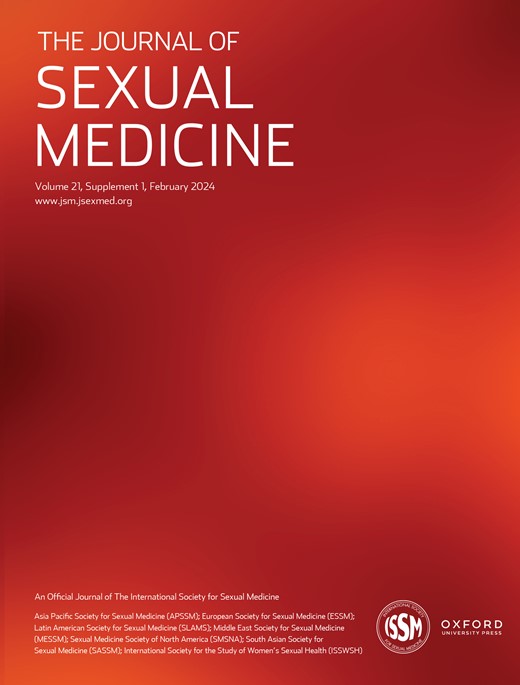
(088) Impact of Testosterone Replacement Therapy on Adverse Cardiovascular Events in Hypogonadism Patients: A Comprehensive Evaluation of Physiological and Supraphysiological T Levels
AbstractIntroduction. Sustained treatment with elevated levels of exogenous testosterone (T) has been linked to various adverse events, particularly concer
Abstract
Introduction
Sustained treatment with elevated levels of exogenous testosterone (T) has been linked to various adverse events, particularly concerning cardiovascular risks. However, there is currently a lack of sufficient literature that comprehensively describes the overall safety profile of supraphysiologic testosterone levels.
Objective
To compare the safety profiles and rates of polycythemia, venous thromboembolism (VTE), major adverse cardiac events (MACE), deep vein thrombosis (DVT), myocardial infarction (MI), and stroke between hypogonadism patients treated with testosterone replacement therapy (TRT) at physiological and supraphysiological testosterone levels.
Methods
We identified patients with hypogonadism (<300 ng/dL) who underwent testosterone replacement therapy (TRT) at our institution through electronic medical record review. Patients lacking records of their first encounter, documented medical history, sufficient follow-up, or post-TRT adverse event data were excluded from the analysis. Supraphysiological testosterone levels were defined as >1000 ng/dL. The included patients were retrospectively analyzed using two-way nonparametric testing for continuous variables and chi-square and Fisher exact tests for categorical variables (α = 0.05).
Results
From a cohort of 537 men diagnosed with hypogonadism, we included 184 patients who underwent testosterone replacement therapy (TRT). Among these patients, 135 (73.4%) were treated to achieve physiological testosterone levels, with a median level of 468.0 ng/dL (interquartile range, IQR = 308.0-644.5), while 49 patients (26.6%) were treated to attain supraphysiologic testosterone levels, with a median level of 1552 ng/dL (IQR = 1279-1700). Before initiating TRT, there was no significant difference in testosterone levels between the two groups (p = 0.11). Moreover, no significant differences were found between the groups in terms of a history of diabetes mellitus (DM; p = 0.422) or prostate cancer (p = 0.29). However, significant differences were observed in the history of hypertension (HTN; p = 0.003) and hyperlipidemia (HLD; p = 0.006), with more patients in the physiologic testosterone group having a diagnosis of HTN and HLD prior to treatment. Regarding adverse events, there were more cases of polycythemia in the supraphysiologic testosterone group compared to the physiologic testosterone group (p < 0.001; 35.4% vs. 7.0%). Interestingly, there was no significant difference in the rate of other adverse events after TRT between the two groups, including venous thromboembolism (VTE; p = 0.285), major adverse cardiovascular events (MACE; p = 0.768), deep vein thrombosis (DVT; p > 0.999), myocardial infarction (MI; p = 0.562), and stroke (p > 0.999).
Conclusions
Despite widespread concerns, these findings suggest that although patients treated to achieve supraphysiologic testosterone levels had a higher incidence of polycythemia, there were no significant differences in the rates of other adverse events after TRT between patients treated to attain physiological versus supraphysiologic testosterone levels.













